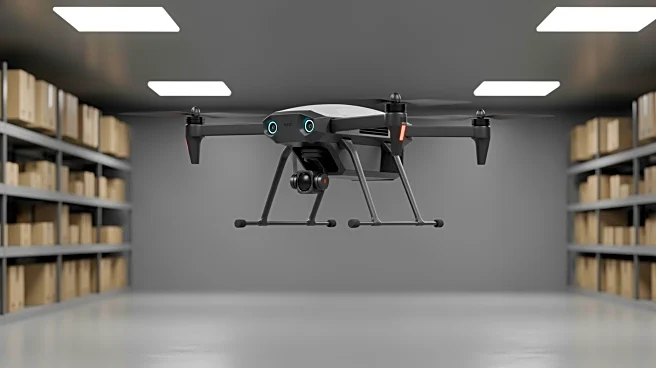What's Happening?
Target is implementing a new fulfillment strategy by designating specific stores to handle online order shipments, while others cease fulfilling these orders. This approach aims to optimize delivery processes, reduce transportation costs, and improve
staffing efficiency. The change follows a successful pilot in Chicago and is now expanded to 36 markets, with plans for further expansion in 2026. Target's stores have traditionally served as fulfillment hubs, handling 98% of online orders, but the new strategy focuses on select locations to specialize in packing and shipping.
Why It's Important?
This strategic shift is significant for Target as it seeks to improve customer experience and operational efficiency amid stagnant sales. By concentrating fulfillment efforts, Target can better manage staffing and extend delivery windows, potentially enhancing customer satisfaction. The move reflects broader trends in retail where companies are optimizing logistics to compete with giants like Amazon. Target's approach could set a precedent for other retailers looking to balance in-store and online operations effectively.
What's Next?
Target plans to expand the new fulfillment strategy to more markets in 2026, potentially leading to improved store experiences and increased sales. The company aims to solve challenges in stores still handling shipments, focusing on enhancing both in-store and digital experiences. As Chief Operating Officer Michael Fiddelke prepares to become CEO, Target's focus on technology and customer experience will likely drive further innovations in its business model.
















